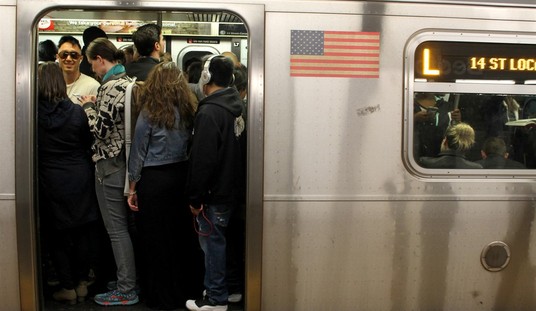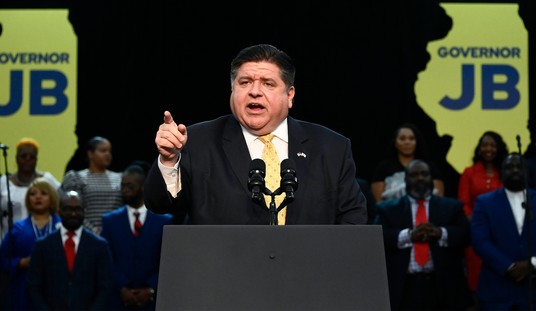Washington Post "climate solutions reporter" Nicolás Rivero last Wednesday penned a ridiculous article warning that common house plants could be a threat to the planet. No, really. As Fox News' "The Five" cohost Greg Gutfeld put it, "When they're going after house plants, it's over."
Rivero's irrational rationale goes like this. While admitting that house plants might "slightly improve air quality," the climate alarmist warned:
[I]ronically, greening indoor spaces can also come at an environmental cost. The trucks that transport plants spew carbon emissions, plastic pots and synthetic fertilizers are made from petroleum and the harvesting of soil components like peat can tear up slow-forming habitats.
"The trucks that transport plants spew carbon emissions." By that "logic," everything we buy — including "climate-friendly" products —is delivered by "carbon-spewing" vehicles. Anyway, Rivero quoted Susan Pell, the director of the U.S. Botanic Garden in Washington, D.C., who offered "a few tips for minimizing the environmental harm of indoor gardening."
Every little thing we do adds up collectively, so if all of us are doing these things, the collective impact is quite large. Plus, the mindful act of trying to be more sustainable in one area of your daily life … helps you to be mindful in other areas.
"A lot of major nursery suppliers are located in Florida and in California," Pell pointed out, leading Rivero to warn:
Depending on where you live, that can be a long way for a plant to travel in the back of a truck — and a lot of carbon emitted along the way.
"To save some money and carbon emissions," advised Rivero, adding:
Pell suggests looking for local plant swaps or garden clubs in your area, which are often organized online or on social media sites. Other gardeners are often happy to give you cuttings of their own plants, which you can propagate and grow into plants of your own.
He again quoted Pell:
Those groups frequently meet multiple times a year and they share not just plant cuttings and potted plants with each other, but they’ll share knowledge as well and sometimes have community events.
These people are serious, gang.
Pick Your Plants Wisely
"Don’t just pick a plant for its looks, admonished Rivero: "You should choose house plants based on the conditions in your home — such as light and humidity — as well as your level of experience and commitment to gardening."
Said Pell: "You really want to have the right plant for the right spot."
Can you imagine being helpless — or hopeless — enough to actually follow advice from these people? Me, neither.
This was my favorite part (emphasis, mine):
Some plants need bright, sunny windows and others need plenty of humidity. If you put the wrong plant in your dim, north-facing window or above your apartment’s radiator, you may need to use a UV lamp or a humidifier to keep it alive, which will cost you money and use extra electricity.
Or, you may simply kill your plant, wasting all the resources that went into bringing it into your home.
To avoid the waste and emotional turmoil that goes with killing a plant, beginner gardeners should start out with low-maintenance species, such as ZZ plants, snake plants or Chinese evergreens, before moving on to more finicky plants that require more care and attention.
If you have a plant that’s in distress, Pell invites you to call the U.S. Botanic Garden plant hotline: 202-226-4785.
Anyway, the "Fox & Friends" weekend crew also found the WaPo article "silly," with guest Bjorn Lomborg, a Danish author and fellow at Stanford's Hoover Institute, taking it to the paint against Rivero.
Look, you're not going to solve climate change by telling people to be poor and be colder, be less comfortable, fly less, drive less. Now, have less [sic] plants. You're going to do this [fix climate change] through innovation.
So stop with this sort of doom-mongering and start thinking about what really works. Innovation is what's going to work.
Co-host Will Cain weighed in on the article's reference to carbon emissions.
These are tiny, tiny things… this will not solve the problem. The real way you're going to solve this is by majorly changing technology. If, say, fourth-generation nuclear was cheaper than fossil fuels, everyone would switch.
Not just rich, well-meaning Americans, but also the Chinese, the Indians, and the Africans, which are the ones that are really going to matter for this century.
A Post spokesperson defended the article when reached by Fox News Digital.
The Post is dedicated to covering a wide range of climate-related topics, from individual choices on a personal level for a more sustainable lifestyle to much larger-reaching subjects such as climate policy on national and international levels.
But house plants? Gutfeld was right.
The Bottom Line
Fear-mongering and catastrophizing — see: Al Gore, John Kerry, Joe Biden — is the currency of climate alarmists. It always has been, and, chances are, it always will be.
And on a larger scale, per the United Nations, it's about massive wealth redistribution — on a global basis. But that's another article for another time.
Meanwhile, don't forget to water your house plants, people.
Related: Giant Offshore Wind Project Touted by Biden Admin Canceled for Not Being Commercially Viable













